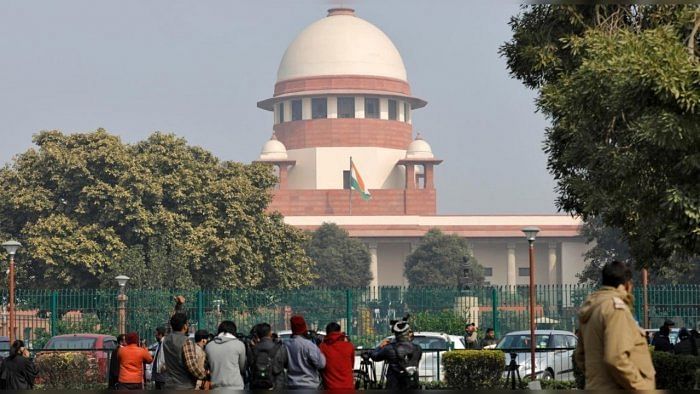
Following are the salient points of the Supreme Court’s historic order putting in abeyance the 1890 colonial-era penal law on sedition, lodging of FIRs, and consequential proceedings under it across the country:
-SC takes note of the May 9 affidavit of the Ministry of Home Affairs (MHA) acknowledging the divergence of views expressed in the public domain by various jurists, academicians, intellectuals, and citizens in general.
-The CJI-led bench permits Centre to reconsider the law after also taking note of part of the affidavit referring prime minister's clear and unequivocal views in favour of protection of civil liberties, respect for human rights, and giving meaning to the constitutionally cherished freedoms by the people of the country.
Also Read | From Disha Ravi to Arundhati, Supreme Court sedition law stay to impact several high-profile cases
-SC order takes note of PM’s view referred to in the affidavit that India as a nation has to work harder to shed colonial baggage that has passed its utility, which includes outdated colonial laws and practices.
-The order agrees to the Centre’s view of reconsideration of provision by its appropriate forum in view of the bench’s prima facie opinion that the rigors of Section 124A of IPC are not in tune with the current social milieu, and was intended for a time when this country was under the colonial regime.
- The order said the top court was cognizant of security interests and integrity of the State on one hand, and the civil liberties of citizens on the other and terms the act of balancing as “difficult”.
-It refers to Attorney General K K Venugopal who, on an earlier date of hearing, had given instances of glaring misuse of this provision, like in the case of recital of the ‘Hanuman Chalisa’.
-The order said it expected that till re-examination, the provision be not used by the governments.
-It said interim stay, granted to some petitioners on May 31, 2021, shall continue to operate till further orders.
-It said states and Central Government will be restrained from registering any FIR, continuing any investigation, or taking any coercive measures by invoking Section 124A of the IPC while the provision is under consideration.
-It said if any fresh case is registered under Section 124A of IPC, the affected parties are at liberty to approach the concerned Courts for appropriate relief. The Courts are requested to examine the reliefs sought, taking into account the present order passed as well as the clear stand taken by the Centre.
-All pending trials, appeals, and proceedings with respect to the charge framed under Section 124A of IPC be kept in abeyance. Adjudication with respect to other Sections, if any, could proceed if the Courts are of the opinion that no prejudice would be caused to the accused, it said.
-Additionally, it permitted the centre to issue the directive as proposed to the states, and union territories (UTs) to prevent misuse of the provision.